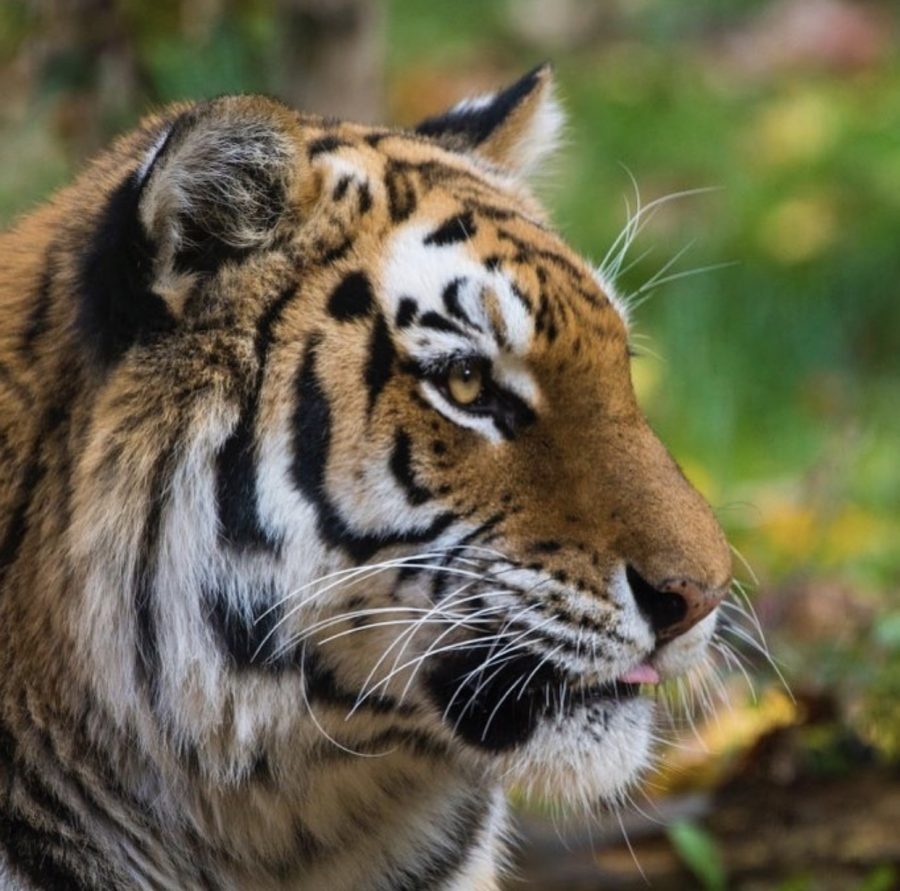Tigers Test Positive for COVID-19 at Bronx Zoo
Bronx Zoo Instagram (@Bronxzoo)
Big cats at the Bronx Zoo being tested positive for COVID-19 raises many questions on what to do next.
April 10, 2020
Nadia, a four-year-old Malayan tiger at the Bronx Zoo in New York, has tested positive for coronavirus. She is believed to be the first animal case tested for COVID-19 in the United States. Nadia, along with six other big cats, was infected with the virus by a asymptomatic zoo keeper. Late last month, after being infected by an employee who remains anonymous, the animals started to show symptoms, including a dry cough.
Paul Calle, Chief Veterinarian at the zoo, stated, “This is the first time that any of us know of anywhere in the world that a person infected the animal and the animal got sick.” Around the world, there have been some cases of isolated pets testing positive for corona. This includes a dog and a cat infected in Hong Kong, and a cat in Belgium testing positive as well. All pets infected had owners who tested positive for the coronavirus. However, scientists have since said that there is no evidence that pets can’t contract nor spread the virus. Calle intends to share the information gathered from Nadia and the rest of the cats to other zoos, and institutions. Calle has sent the findings to scientists and veterinarians to Cornell University, the University of Illinois, and the USDA National Veterinary Services Laboratory.
The zoo has since made a statement, saying, “We tested the cat [Nadia] out of an abundance of caution and will ensure any knowledge we gain about Covid-19 will contribute to the world’s continuing understanding of this novel coronavirus.” Nadia, with her sister Azul, two Amur tigers, and three African lions have showed symptoms, but are expected to make a full recovery. The cats showed a loss of appetite, but were also “bright, alert, and interactive with their keepers.” Since the development of the virus is unknown in these kinds of species and may react differently, the zoo said that the animals will be monitored closely.
All tigers showing symptoms were placed in the zoo’s Tiger Mountain area. The zoo’s other animals have yet to show symptoms. The four zoos, including the Bronx Zoo, owned by the Wildlife Conservation Society in New York City, have all been closed since March 16th. New regulations will be placed on the zoos in order to protect their animals and the caretakers involved. The procedures in order to test the animals for the virus are unclear. Animal testing for COVID-19 is different to that of human testing. To test large cats, they’re placed under anesthesia, requiring the zoos to only test one cat at a time.
The infected animals raise questions if COVID-19 was an animal-to-human transference, or the other way around. Originally, people had thought coronavirus derived from wildlife and Wuhan’s live animal market. Now, the infection of Nadia and her zoo friends bring up speculation that the transmission could have been human-to-animal as well. The World Organization for Animal Health and the World Health Organization (WHO) say they are researching more into the topic to understand this issue.

